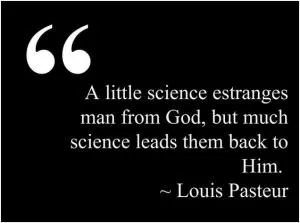The controls of life are structured as forms and nuclear arrangements, in a relation with the motions of the universe

The controls of life are structured as forms and nuclear arrangements, in a relation with the motions of the universe
Louis Pasteur, a renowned French chemist and microbiologist, is often credited with revolutionizing the field of microbiology and making significant contributions to the understanding of the controls of life. His groundbreaking work on the germ theory of disease and the process of pasteurization has had a lasting impact on the fields of medicine and public health.In the context of Pasteur's work, the statement "The controls of life are structured as forms and nuclear arrangements, in a relation with the motions of the universe" can be interpreted as highlighting the intricate and interconnected nature of life and the universe. Pasteur's experiments and observations revealed the importance of understanding the structure and arrangement of microorganisms in relation to the health and well-being of living organisms.
Pasteur's experiments with fermentation and the role of microorganisms in causing disease led him to develop the germ theory of disease, which posited that many diseases are caused by the presence of specific microorganisms. This theory revolutionized the field of medicine and laid the foundation for the development of vaccines and antibiotics to combat infectious diseases.
Pasteur's work on pasteurization, a process of heating liquids to kill harmful bacteria, further demonstrated the importance of understanding the controls of life and how they can be manipulated to improve human health. By controlling the growth and spread of harmful microorganisms, Pasteur was able to prevent the transmission of diseases through contaminated food and drink.












 Friendship Quotes
Friendship Quotes Love Quotes
Love Quotes Life Quotes
Life Quotes Funny Quotes
Funny Quotes Motivational Quotes
Motivational Quotes Inspirational Quotes
Inspirational Quotes